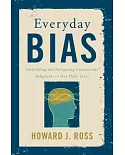This edited volume contains 20 essays on the legal and humanitarian landscape governing the obligations of business to protect human rights. It is divided into four parts focused, respectively,
on theory and practice of directly connecting human right obligations to corporate activities, the extent and limits of corporate responsibility for human rights, access to justice required of
corporations, and case studies aimed at showing how laws have developed to counter human rights abuses by corporations. Writers look at ethical as well as legal challenges to human rights
related to business activities, an expanded understanding of due diligence beyond corporate-centric definitions, privatization and the enforcement of responsibilities, and the right to health.
Also examined are access to justice, due diligence, and reporting obligations as an effective alternative to the imposition of human rights obligations; the ability of importing states to
leverage influence to attain gains in corporate conduct; litigation and adjudication to support the U.N.’s Guiding Principles; the use of company complaint mechanisms; and investigation of
international investor arbitration versus expectations of Guiding Principles. Case studies cover, among other things, responsibilities of private military and security companies, state-owned
companies, the cocoa industry and its use of child labor, African human rights and corporate complicity, international human rights, and the usefulness of private international law in the U.S.
and Denmark to redress gendered harms in the fashion industry. Distributed in the US by ISBS. Annotation ©2015 Ringgold, Inc., Portland, OR (protoview.com)





















